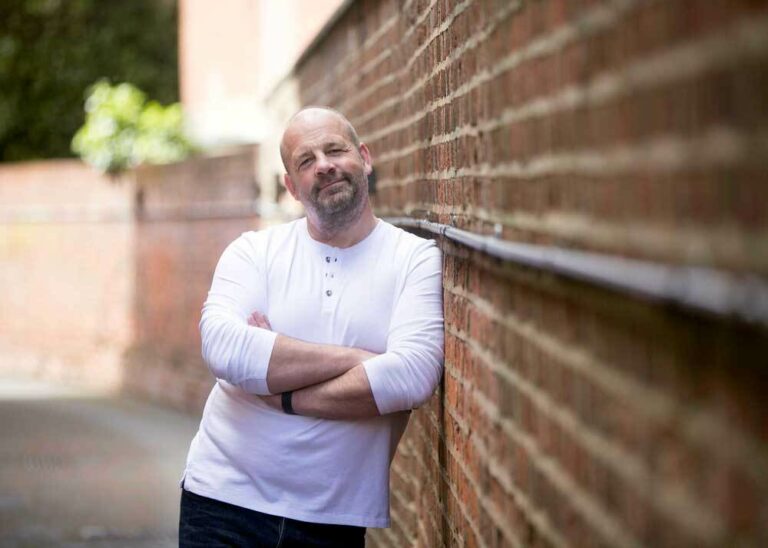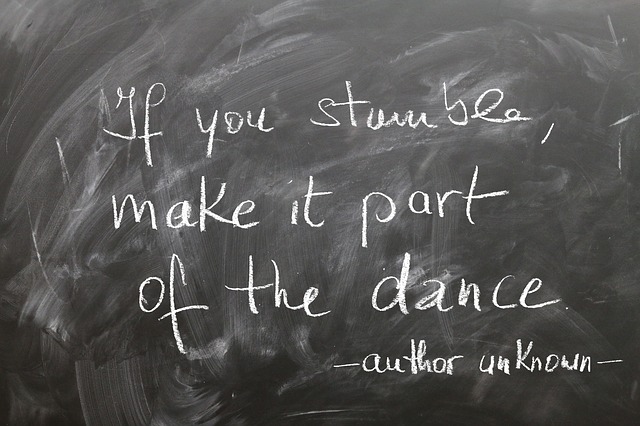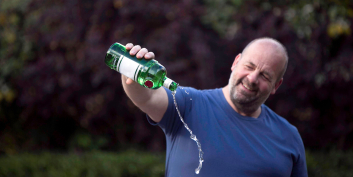
In this article, I will share some ‘best practice’ tips for quitting alcohol for good. This is not a spurious theory, this is based on sound psychology and my experience of helping thousands of people get sober once and for all. Most of them have tried all the ways that don’t work, and I will share with you some simple changes that can make all the difference and set you on a path to a much healthier relationship with alcohol for good.
Before we get started, it is worthwhile to remind ourselves of the key benefits of quitting alcohol. Alcohol addiction ruins lives, relationships, and families. Getting to grips with this may just be the biggest gift you can give to yourself in your lifetime!
I have a massive social media group devoted to people’s alcohol withdrawal journey, and I am always astonished at some of the before / after pictures that people share. Within a few weeks, there is an extraordinary improvement in people’s skin before and after quitting alcohol. You see people’s skin become clearer and more vibrant, their eyes regain their sparkle, and they look years younger.

When people reach out to me, it is usually because something bad has happened. There has often been an embarrassing situation or a warning from a spouse (or doctor) about alcohol abuse and alcoholism. The pain you feel after something like this is very energising, and it is good to get you going. This pain, however, will not keep you motivated in the future.
While you may be feeling like it is ‘never again’, this tends to add overwhelming pressure in the early days of substance abuse, so commit to taking a break (I recommend 3 months to fully experience the physical and emotional ‘healing’ effects of quitting alcohol).

There are plenty of people who think that quitting drinking alcohol will make their life worse in some way. It is worth noting that these people invariably have not done it themselves! Speak to someone who has substance use disorder and achieved sobriety. They will tell a different story – reduced anxiety, healed relationships, and better physical and mental health.
The number one piece of feedback I get from clients is, “I just feel like I have got ‘me’ back”.
This is a good thing you are doing, so make sure you take the time to appreciate how much better you feel, as you go. In the FREEDOM programme, I utilise a series of hugely powerful techniques to harness the power of the positivity that resides within you.

OK, I appreciate that this sounds counterintuitive, but this tip has a huge effect on becoming alcohol-free. When you understand that the human mind has great difficulty recognising negatives, you will find that focussing on ‘quitting drinking’ results in your imagination coming up with images and recollections of… you drinking.
What does you not drinking even look like anyway? Is it you skydiving? Swimming? Riding on horseback?
You are not drinking in any of these scenarios, so why don’t they help? The ‘not drinking’ concept is simply too abstract to be useful.
It is worth noting that nobody can ever get excited about NOT doing something – it simply doesn’t work that way.

Addiction is an emotional issue, not a rational one. If an alien landed next to you and asked you to explain your drinking, you would tell them about how much it costs, the trouble it causes at home, and the debilitating impact on your sense of self-worth. They would quite rightly say, “Why on earth would you do that to yourself then?”
Drinking heavily and regularly makes no sense because it isn’t rational. If indeed it was rational, you would simply read the articles on this website, and go, “Fair enough – I’ll stop”
You and I both know it isn’t that simple. Most people apply rational behaviors (e.g. willpower, moderation) to an emotional issue and expect it to work. It never does in the long term.

Nobody is coming to do this for you. Nobody will sit and wait for the opportunity to offer perfectly-timed words of wisdom or encouragement. Even the most supportive partner will say or do the ‘wrong’ thing -even from the best of intentions. Nobody understands what is going on in your head, and vice versa.
Becoming self-reliant in terms of this quitting alcohol journey is key. Focus on the positives. If you relapsed but started drinking later than you normally would have, focus on that positive. Becoming alcohol-free is a long process, but progress is progress and you need to acknowledge it, whether you moved forward a millimetre or a mile.

This tip can feel a little obvious, but as adults, we have this thing called an EGO (See also below). Our ego is full of self-importance and a sense of how the world should be.
Your ego is the voice inside your head that criticises you for slip-ups, robs you of your confidence, and sets you on the path to repeated failure. We tend to instinctively know how to learn when it comes to others, but we lose sight of this when it comes to ourselves.
Think of a child learning to walk – do we criticise it, berate it, or tell it that it should have sorted this out by now? Of course not. We look for signs that it is ready to take a step, and we encourage it and support it.
When that first step is made, we celebrate and cheer! But, we also know this is not the end of the story – we are not going to see that little infant running the New York or London marathons the following day.
Stumbles will occur and when that happens, we dispense love and reassurance that it is Ok to try again. This is what learning is all about, and this shift in thinking is one of the biggest challenges on this alcohol-free journey.

Heavy drinkers with alcohol use disorder rarely look after themselves very well. This can range from personal neglect in all aspects to frantic exercise regimes to overcompensating for their self-abuse, further leading to injury and exhaustion. When working with clients 1-1, I talk a lot about being kind to yourself. Any process of personal growth is always going to have its tough moments, so making sure you are in the best possible state at all times is paramount.
Make an inventory of things you are grateful for in your life, list down the things that put a smile on your face, and vow to push them up the priority list. Taking your own well-being and happiness seriously is a big part of this journey. When you can sit back and say, “You know what? This is better!” then your chances of relapse recede greatly.

You cannot fill a cup that is already full. I often get emails from people who are still drinking heavily, telling me how I should run my business, or what they think the programme needs to look like. I always discourage these people from signing up as they are rarely successful.
Having an open mind is super important. It may be that every single aspect of the programme is completely crucial to your alcohol withdrawal journey, or it may be that there is one, single, hugely significant moment that makes it all finally ‘click’. This is a personal journey, and we are all different. We all come into this from a different set of circumstances, and we all have different aspirations in terms of what success may look like, so an open mind is essential to navigating your personal path.

It is said we become the average of the 7 people we spend the most time with. If your peer group is a bunch of boozy mates who spend their time down the pub, then chances are this is going to be a bit of a struggle. You may be surprised at the differing reactions that you get from others, for example:
Scepticism (‘ Yeah right, let’s see how long that lasts’ )
‘Inappropriate kindness’ (‘ Oh, you are OK, maybe you should cut down a bit, but you are fine’ )
Arrogance ( ‘What you need to do is…’ )
Curiosity (‘What makes you think it’s a problem?’)
Camaraderie (‘I quit last year and it’s the best thing I ever did, but haven’t really shared it with everyone’)
Support (‘Good on you – how can I help?’)
Obviously the last couple are the most helpful but be ready for anything! Finding a support group and people who have your back is priceless. Some people won’t like the fact you are doing this, as they don’t feel able to themselves.
Being successful would make you better than them (in their eyes) and this can be very challenging for them. Find your allies, stay close, and try and limit your exposure to the naysayers, at least in the early days while you are finding your feet.

This can feel a little self-indulgent, but it is a big part of this journey. After all, you are going to have more time, more money, more energy, and a load more self-esteem, so why not put it to good use?
Life is for living - make sure you live it. Quitting alcohol, and reminding yourself what makes you genuinely happy is important. Taking practical steps to push your happiness back up the priority list is crucial.
When I first set up Sober in Seven, one of my early clients was struggling with what to do on a Saturday evening - she and her husband used to polish off several bottles of wine on the sofa and fall asleep in front of the TV.
She was determined to break the cycle but got in touch as she was feeling a little stumped.
When we chatted, I suggested that if the Saturday night was such a challenge, why not get an early night, and then see what Sunday morning brings?
I didn’t hear from her for a few weeks and then received an email out of the blue.
She told me she had considered that advice and decided to go to bed around 8.30 pm. After all, she was generally asleep by then anyway, so why not do it in her own bed?
She lived on the coast of Wales in the UK and mentioned there was a beautiful little beach near her house. It used to break her heart to see all the plastic waste that washed up and various bits of rubbish from careless visitors.
So, she started getting out of bed, going down to the beach with some bin bags and clearing it of rubbish. She put the bags in the big wheelie bins and walked back to the house in time for the rest of the family to be waking up.
As she put it, ‘Nobody knows I do this, but I feel 10 feet tall for the rest of the day!’
Pretty cool, don’t you think? It doesn’t have to make sense either - it just has to be important to you and make you feel good.

Goals are important in all aspects of life. They keep us focused, provide motivation when times are tough, and deliver huge dollops of self-esteem when they are achieved.
Setting a goal around your sobriety can be enormously helpful when trying to quit alcohol. In the Freedom Programme we do a supported break for 100 days, giving you an opportunity to get some physical and emotional distance from alcohol and some objectivity back.
Just as importantly, set a wider goal to make quitting alcohol mean something. Signing up for a physical challenge, putting the money aside for a treat, or even reconnecting with a hobby that you have neglected for a while can be very fulfilling.
These goals don’t have to rationally make sense - just set them because they would be good to do. When I set a goal of a big cycling challenge, I never thought it would lead to me riding the entire course of the Tour de France. And yet, that is just what happened. It didn’t make much sense to do it, but it was, without doubt, the most satisfying and life-affirming thing I have ever done in my life.

There are plenty of so-called 'truths' out there.
"Addiction is genetic- there is something wrong with you"
"My Uncle drank a bottle of whisky a day and lived until he was 90"
"You will be boring without a drink" (This is always a great one when delivered by a drunk person)
"A little drink every day is good for you"
"You have to hit rock bottom first"
"You never truly recover from this - you will battle this every day"
You get the idea.
Addiction lies in the subconscious mind. The subconscious is enormously powerful, but it tends to believe everything it is told. Bummer.
In the FREEDOM Programme, we spend a bit of time having some fun exploring a lot of this stuff. I firmly believe that if we can do this in a threatening way and have a bit of a laugh at ourselves for falling for some of the utter rubbish that circulates about alcohol abuse and alcoholism, then this is a big part of healing and getting past this.
I was chatting with a lady on one of my exploratory calls, and she asked, "So, are you going to brainwash me then?"
My reply was pretty blunt - "I have bad news, you are getting brainwashed anyway, we are just making sure we choose our own brand of soap!"
I wasn't actually joking, even though we had a laugh about it.
Subtle pressure to drink alcohol is everywhere.
I did an audit of adult birthday cards in a UK supermarket, and a staggering SIXTY-FIVE percent of cards basically said, "It's your Birthday - get drunk"
Often when I speak with people, they may say, "I am not sure how I ended up here" and my response is,
"I do - this stuff is everywhere".

Putting your hand up and asking for help is a sign of strength, not weakness.
In theory, you could do this on your own, but having someone who has walked this path already can be a gamechanger. I have personally been part of 40,000 people's journeys in a variety of roles and have seen the subject of alcohol addiction from a number of different perspectives.
On my own journey, I used to think I had done it on my own, but I realise it was the countless courses, experiences, and research I had carried out over the years, that finally made everything fall into place.
When I started this journey of helping others in 2017, it was very taboo to talk about alcohol addiction. Now I have a social media group with over 30,000 people (as of early 2022) and people are much more curious and open about discussing this. Whether it is the Freedom Programme, AA, or another route, help is out there if open your eyes.

Nobody is coming to do this for you. The planets will never align in the way you want them to. Not taking action means this only gets worse.
Everyone I work with tends to say the same thing - ‘I wish I had done this sooner’.
AA say you ‘have to hit rock bottom’ and I have never subscribed to that theory. That is a bit like saying, ‘you have to get to 500lbs and have had a heart attack before you decide to lose weight and get fit.’
Responsible people take action. From my personal perspective, I often tell people it took me 10 years and 3 days to sort my drinking out.
10 years of procrastination, suffering, and misery.
And…
3 days of deciding that enough was enough, and I would sort this out once and for all.
I don’t think I could have short-cut the 10 years, but boy do I wish it was shorter. I simply had to suffer enough to get truly sick of it, and then take action. When I took action, the way unfolded for me.
An ex-boss of mine once advised me, ‘If you are stumbling around in the dark, and get a glimpse of the light at the end of the tunnel, head in that direction!’
It’s true, isn’t it? When you get a sense that something might be the right thing to do, you simply need to commit.
How bad does it have to get? Maybe things do have to get worse, to make you sufficiently motivated to tackle this.
or...
Maybe you could take a step. right now. Today. And your life could change forever.
Click the button below and make an investment in your future happiness. It's worth it, I promise.


Copyright 2022. All rights reserved. Sober in Seven. Terms and Conditions. Privacy Policy